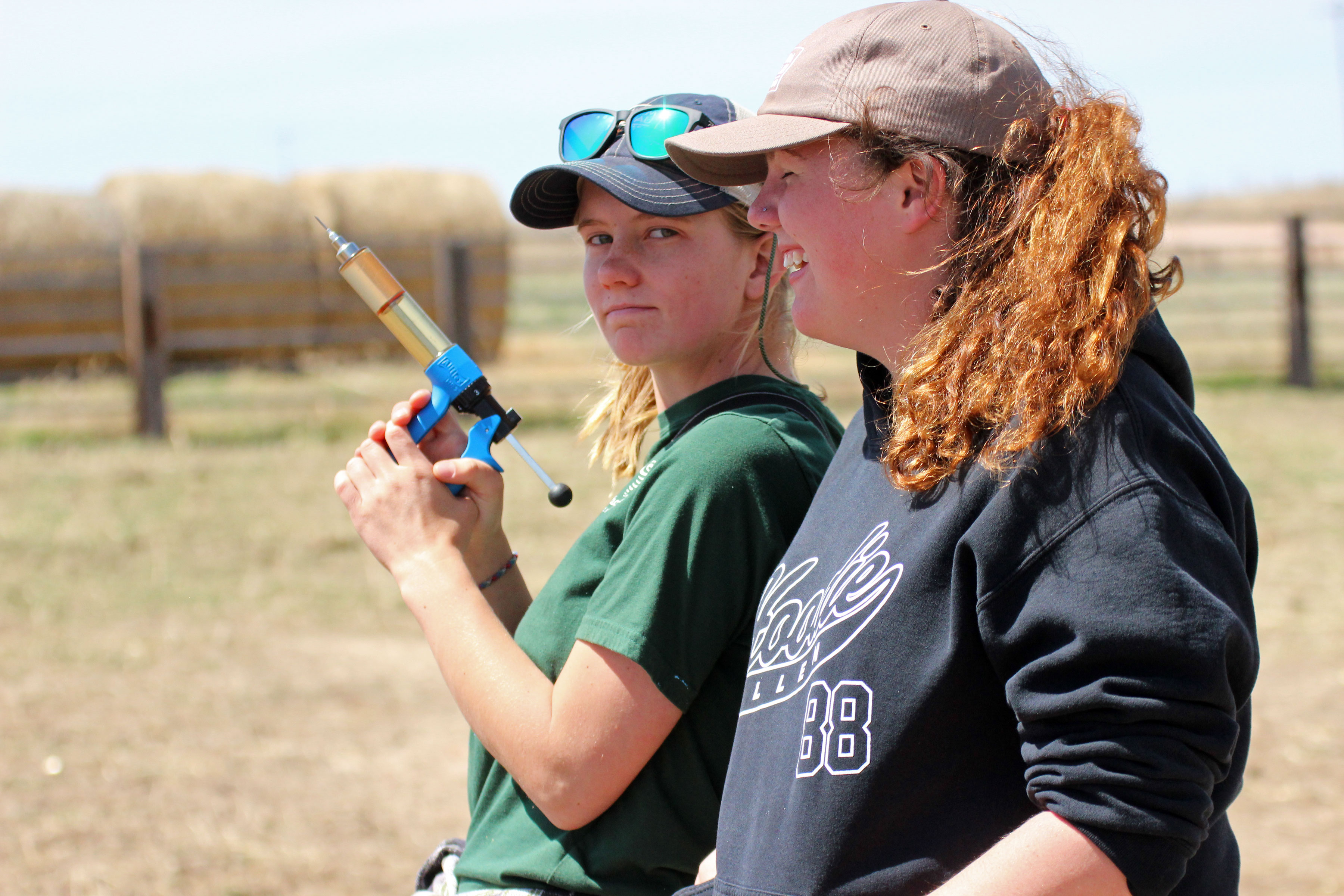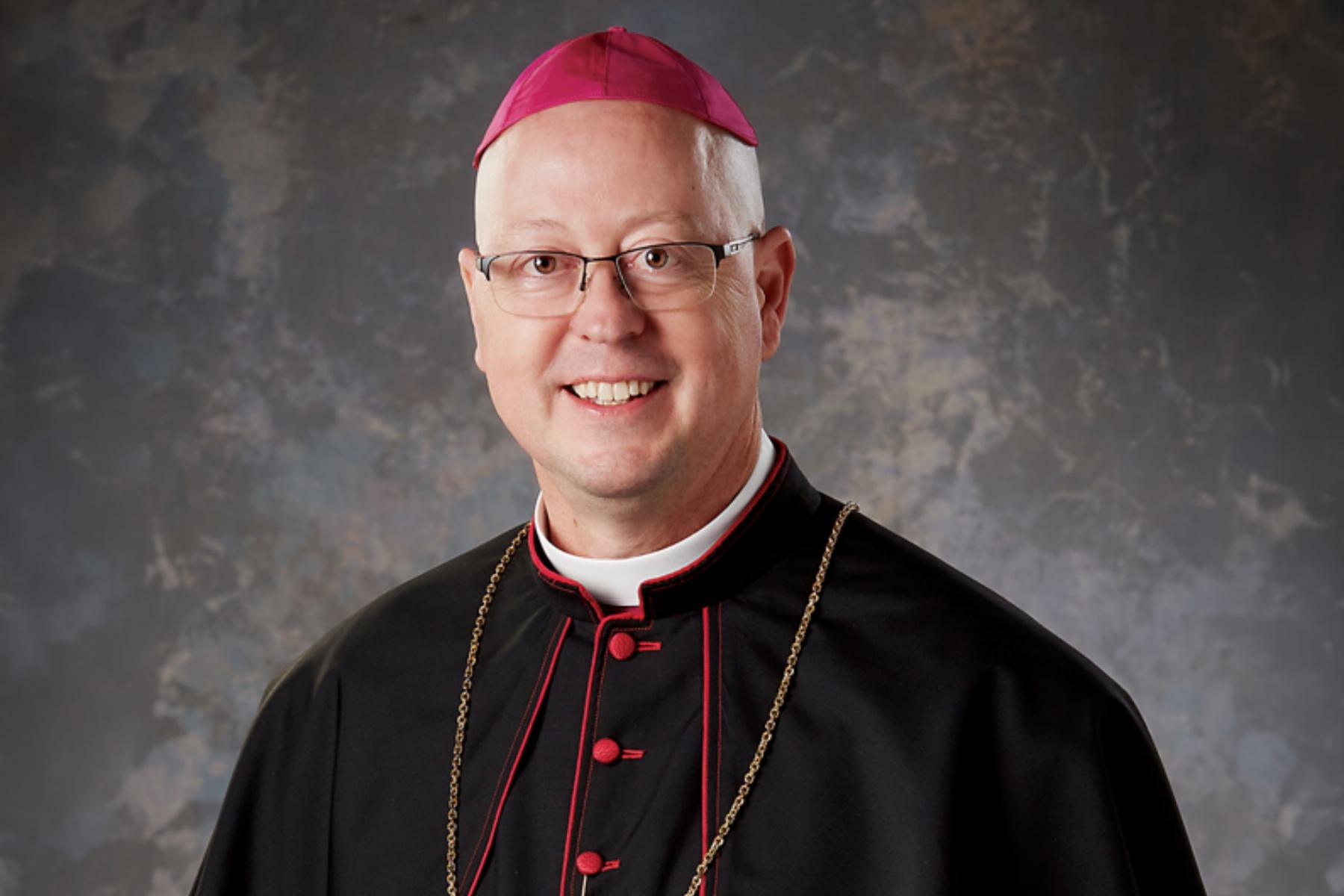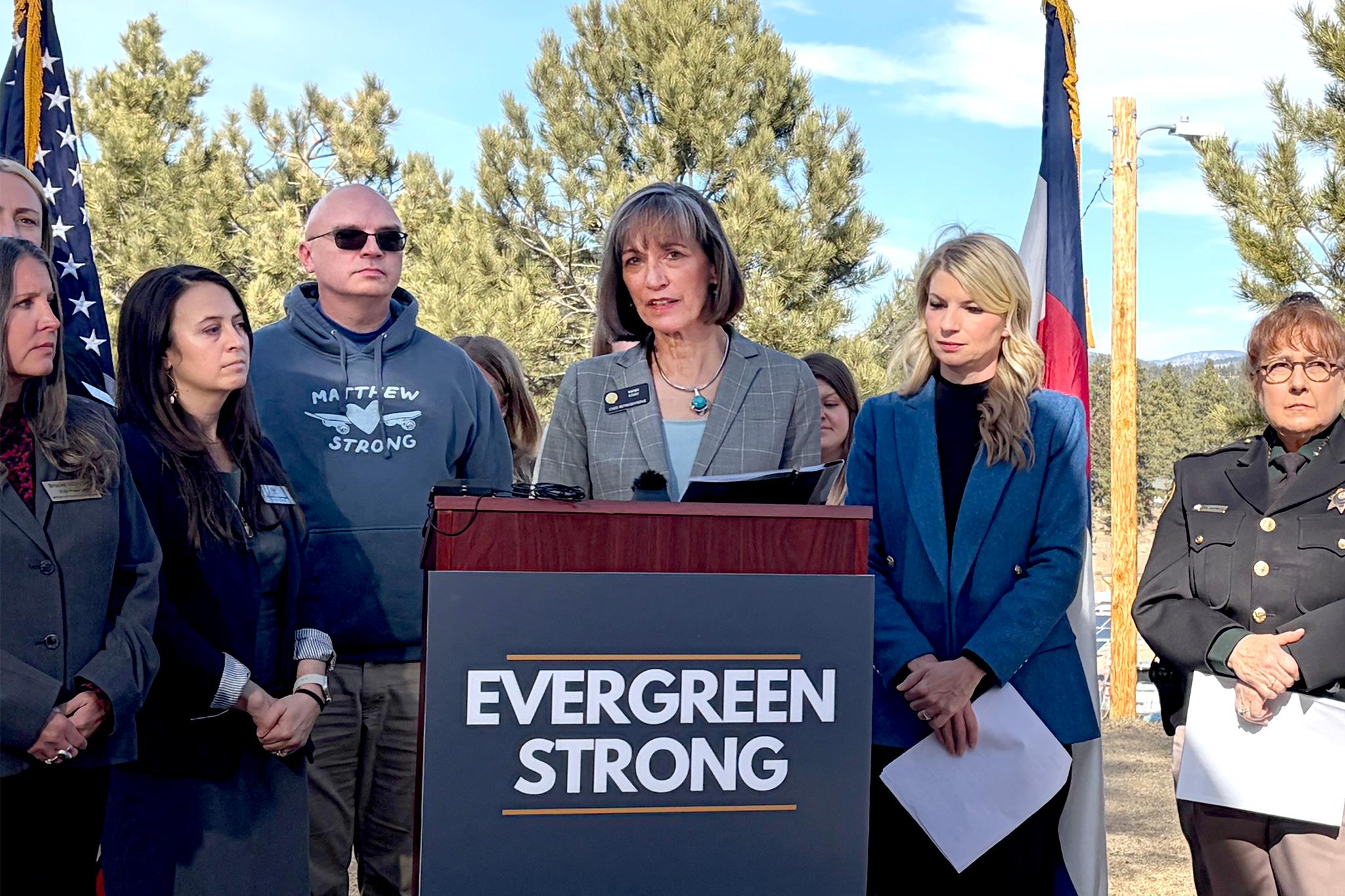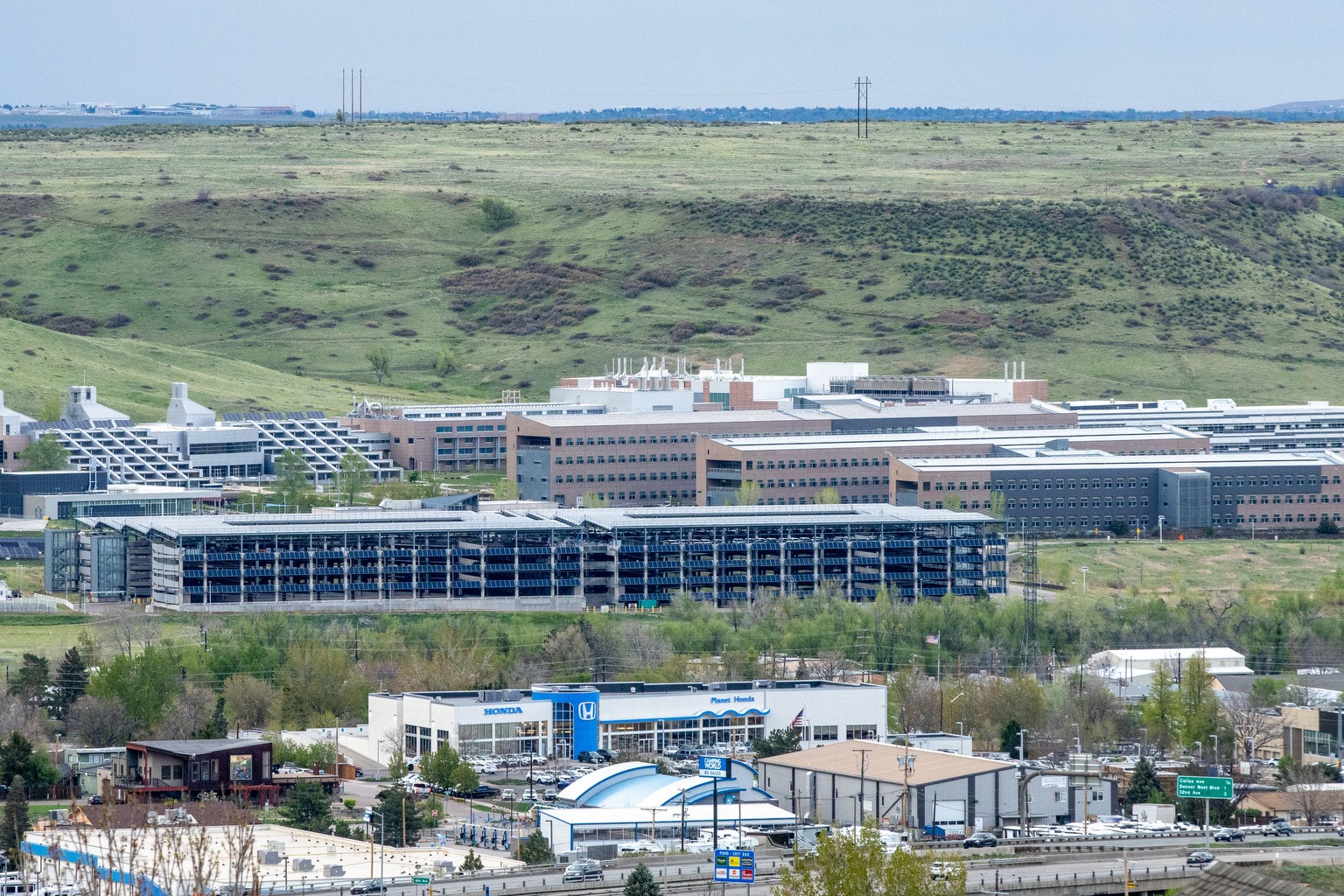
Lyle Cooper might be a city girl, but standing in a pen in mud-caked boots, she’s taken to feeding a steer she’s named “Meatballs” with gusto.
“’Cause he might turn into meatballs and it’s just a funny name and he’s a funny cow,” Cooper says.
For one week, Cooper and classmate Mackenzie Neys are metro Denverites who find themselves in a very different world just 40 miles from the Kansas border. On a 3,000 acre Yuma, Colorado, farm of corn, popcorn, hay and alfalfa, the girls got up close and very personal with a 250 head herd of Angus cattle. It’s an altogether different situation than many high school seniors who say their last semester feels like wasted time.
The girls are enrolled in “Senior Field Studies” at JeffCo’s Bear Creek High. The experiential education program for second semester seniors lets them move their classroom outside of school to three environments: urban, rural and wilderness — all the while earning a full semester’s academic credit.
For Senior Field Studies program director Steve Porentas, the whole idea is learn more than what is passively observed in the classroom. “Maybe a small percentage of it will sink in but a lot of it goes away,” he says of the traditional chalkboard and desk model.
“With field studies the idea is they’re going to learn so much more about, for example, the rural lifestyle, by being on a farm for a week. They’re going to remember it for the rest of their lives.”

It all began in 1975 at Bear Creek High School. Mark Leachman, who oversaw Senior Field Studies for 34 years, says at the time, Jefferson County was a “hot bed” of experiential education. But the money dried up and by 1982, the program was self-funded (It costs $1,400 per student). Bear Creek remains the only high school in the state with “Senior Field Studies.”
“Seniors coming out of the normal classroom, they may have a lot of facts and they may know Southwest Plaza really well,” Leachman says. “Some of them are worldly, but a lot of them really haven’t been out there very much, so this is a chance to really expose them to new ideas and new places and different types of people.”
There are six major course activities, each lasting about two weeks. Major course components include a two-week backpacking and rock climbing trip to Arizona, a one-week Colorado farm or ranch live-in, and a 6-day whitewater rafting expedition in northwestern Colorado. They also do a community service project and set up their own field trips in six different systems that make cities function, like law enforcement or water utilities.
“We like to have them look at how we get our water in Denver, and then when they’re on the farm, how they get their water on the farm,” Leachman explains, “and then when you flush the toilet in Denver, where does it go, and when you flush the toilet on the farm, where does it go?”
Teachers can try their best to teach about agriculture or how a city works, Porentas says, but out on the farm in Yuma, “the farmers and ranchers are the educators and I, the teacher, simply facilitate the experience.”
“Instead of relying on me to be the source of knowledge, experiential educational allows community members — politicians, scientists, business owners, police officers and firefighters — to be the educators.”

The day of their trip to Nikki and Nate Weathers’ Yuma cattle ranch, Bear Creek HS seniors Lyle Cooper and Mackenzie Neys were a little nervous. Both are vegetarians after all.
“So they [school program leaders] just really want us to try really, really hard and push ourselves and really lean into the experience,” Cooper said.
“We literally will lean our arms into cows this week,” Nikki Weathers tells the girls with a laugh.
The Colorado Farm Bureau helps find farm families to host students, but some ranchers didn’t want to host students who were vegetarians. There was nervousness over what to feed them and things like that. But Weathers had no problem.
“Because it’s always worth a conversation,” she later explains. “It’s always worth it to talk to them about why they’re vegetarians or why they might have different eating restrictions. Hopefully [the week] was an eye opening experience for them so it’s worth it to us to be able to show them how animals really are cared for.”
By mid-week, the girls have rounded up and fed the cattle, moved fences, and have learned a lot about livestock reproduction. With white latex gloves on, the girls found themselves wiping the cow’s genitalia before ranch hand Danny Calderwood, Nikki Weathers brother, places a progesterone insert to prepare it for artificial insemination.
The girls are getting the taste of ranch life even though Mackenzie Neys - who’s 17 - says she’s never liked the taste of meat. There’ve been moments to remember like watching the birth of a calf.
“It’s really beautiful just watching something get born,” Neys says.
The last challenge for the high school seniors came at the end of the week: branding day. Weathers explains that cattle rustling and theft still happen, so that’s why they band. Colorado’s ag department has a brand inspection division that keeps track of everyone’s brand.
Fifteen-year-old ranch hand Tommy Staggs is old school when it comes to separating out the calves from the herd. He ropes the calves, flips them to their sides and in a minute, Weathers deftly vaccinates them. For the males, someone else places a very small rubber band over the scrotum, above the testicles, so they’ll eventually fall off (that’s castration). Weathers’ husband Nate then steps in with the hot brand. Within seconds, the calf is up and running around, waiting to get back to its mom.

“It’s pretty overwhelming,” Cooper says. “But it’s also really informative because I didn’t know there were different uses and different ways to care for your cattle… It kinda reminds me of tattoos because tattoos hurt like hell when you’re getting them but afterwards they’re totally fine.”
Neys says it smells like the glue they use to put your braces on. The girls are tired after an intense day, but as their experience winds down they say they’ve learned a lot and that not all cattle are raised the same.
“Seeing them out here free range is just really eye-opening,” Neys says. “They’re happy here. You can tell they’re not mistreated or neglected, they’re happy and clean and healthy, it’s just nice to see.”
Cooper remembers when she and Neys arrived at the Weathers’ ranch, their two young children were confused about why the high schoolers were there.
“They were like, ‘why are you here to learn but you’re not in a classroom’ and we would just say, ‘we are in school, this is our school, And you don’t need a classroom to learn,’” Cooper says. “The whole world is a classroom.”









